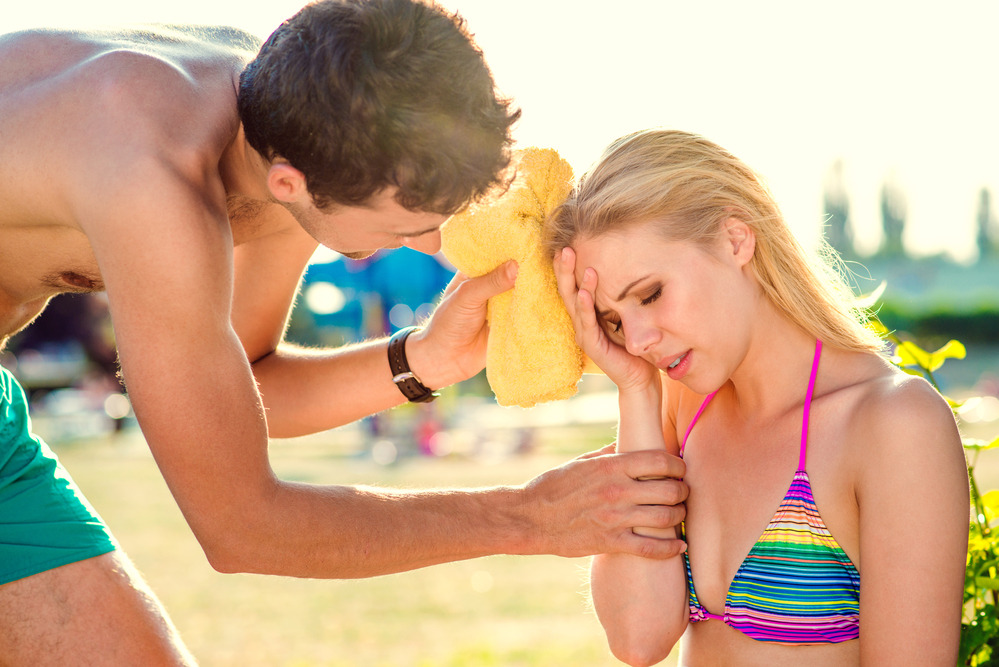The Most Common Summertime Injuries and How to Treat Them
 Summer is in full swing, and even if it’s not exactly the same kind of summer we’re used to, with many areas still having strict social distancing guidelines in place, kids are still outside playing and enjoying the summer sun. And that means there are still many of the same opportunities for common summer injuries. Below is a list of the most common injuries that occur during the summer, as well as the best ways to treat them.
Summer is in full swing, and even if it’s not exactly the same kind of summer we’re used to, with many areas still having strict social distancing guidelines in place, kids are still outside playing and enjoying the summer sun. And that means there are still many of the same opportunities for common summer injuries. Below is a list of the most common injuries that occur during the summer, as well as the best ways to treat them.
Heat-Related Illnesses
There’s a lot to enjoy about the warmer weather, but heat has its dangers too. During the summer months, many people end up suffering from heat-related illnesses, including dehydration, heat exhaustion, and heatstroke. The best way to treat these illnesses is to prevent them from occurring in the first place. Make sure you and your kids are getting plenty of water when spending time outside. If anyone begins to feel overheated, light-headed, or overly exhausted, ensure they get somewhere cool and shady to rest and have a drink. If possible, avoid being outside during the hottest parts of the day.
Swimming Injuries
Summertime means swim time, and that means higher potential for water-related injuries. These can include everything from head and neck injuries from diving in shallow water to boating injuries and, of course, drowning. Drowning is the second most common cause of death in children between one and four years old, according to the CDC, so it’s absolutely essential that children are supervised when swimming, preferably by an adult who has water rescue training and experience.
Ensure that all swimmers know and follow proper safety protocols around the water, as well as any additional safety protocols necessary for activities like boating. If a serious swimming injury does occur, you should call 911.
Burns
Barbecues and campouts are a central part of many people’s summer activities, and both of these activities have a risk of burns involved. Adults and children alike are susceptible to these injuries, so everyone should take precautions. Make sure that children are not left unattended anywhere near a campfire or hot grill, and ensure that whoever is responsible for manning the grill or fire has sufficient experience.
If someone receives a minor burn, hold the area under cool (but not cold) running water or apply a cool, wet compress until the pain eases. Don’t break any blisters that may develop; these protect against infection. Apply an antibiotic ointment. Once the burn has completely cooled, apply a soothing lotion to prevent drying, then bandage the burn with a sterile bandage. Wrap it loosely to avoid putting too much pressure on the area. Take a pain reliever to ease discomfort.
Minor burns should heal within a couple weeks. If someone is more seriously burned (beyond redness and minor blistering), seek medical assistance.
Food Poisoning
Believe it or not, instances of food poisoning spike in the summer months as well. This is often because of those summer barbecues and other gatherings where large amounts of food are left out in the sun. While extremely unpleasant, food poisoning is not generally something you need medical help for. Simply stay hydrated and ride out the next 24 hours until the sickness passes.
To prevent it from happening in the first place, be cautious of foods that are left out for more than an hour, as they become a breeding ground for bacteria. Be sure to wash your fruits and vegetable thoroughly as well.
Sports Injuries
Sports-related injuries are more common in summer as well. These include everything from twisted ankles to broken bones and concussions. Minor injuries like sprains and strains can usually be treated with the R.I.C.E. method—Rest, Ice, Compression, and Elevation for the injured area. For serious injuries, you should always seek a doctor’s treatment.
Bug Bites and Other Irritants
Insects abound in summer, and we’re all bound to get some mosquito bites while enjoying those summer nights. You may also suffer from tick and other insect bites. Usually, these aren’t a big deal. They’re itchy and irritating, but with some anti-itch cream, it will pass. However, you should keep an eye out for symptoms of any insect-borne diseases.
Other skin irritants, like poison ivy, oak, and sumac also make a comeback every summer. Treat these with ointments and soothing lotions. Keep an eye on the resulting rash and look for any swelling that doesn’t go away or that worsens. If this happens, you may want to call your doctor.
Stay safe as you enjoy the summer months! And, if you find yourself in need of any medical equipment such as ankle braces while recovering from a sprain or first aid kits to take camping with you, please feel free to give us a call!